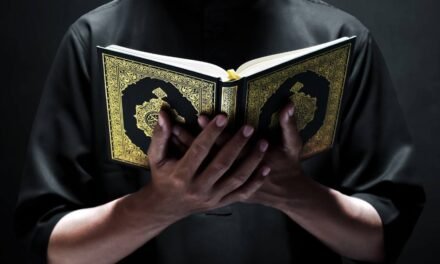The opening verse of the Quran, Al-Fatihah, holds immense wisdom within its seemingly simple words. Today, I want to delve into the profound meaning behind “Alhamdulillah Rabbil Alameen” (All praise belongs to Allah, Lord of all the worlds).
The Power of “All Praise Belongs to Allah”
This verse isn’t just saying “I praise Allah” or even “We praise Allah.” There’s a deeper reason for this phrasing. “All praise belongs to Allah” encompasses a much grander concept. It acknowledges that Allah deserves all forms of praise, not just the limited understanding we possess. It’s a humbling reminder that true praise extends far beyond what we can even conceive.
Beyond Human Understanding
Imagine trying to praise an infinite being with your finite knowledge. It wouldn’t be complete, would it? “All praise belongs to Allah” recognizes this limitation. We can’t fully grasp the vastness of Allah, so we acknowledge that He deserves all praise, even the praise we can’t comprehend.
Unpacking the Word “Praise”
The Arabic word used here, “Hamd,” carries a specific weight. There are other words for praise in Arabic, but “Hamd” signifies a deeper meaning. It includes not just thankfulness for blessings received, but also recognition of Allah’s inherent qualities that make Him worthy of praise.
Allah: The All-Knowing Lord
This verse also signifies Allah’s absolute perfection and limitless knowledge. Every day, scientific discoveries unveil new wonders, highlighting how limited our understanding truly is. Only Allah possesses complete knowledge of the true nature of all things.
Universal Lord, Universal Praise
The phrase “Lord of all the worlds” defines why Allah deserves “all praise.” If He’s the Lord of everything, both physical and spiritual, then His blessings must reach all creation. This aligns with the concept of Islam as a universal religion for all humanity.
Interconnectedness and Responsibility
By linking “all praise” to “Lord of all the worlds,” Allah reminds us that our individual well-being is intertwined with the collective good. A true believer strives not only for personal betterment but also for the betterment of all humankind. We all share in Allah’s blessings, and our happiness is interconnected.
A Personal Reflection
Reflecting on this verse has deepened my connection with Al-Fatihah. It’s a constant reminder of Allah’s limitless grace and our dependence on Him. It’s a call to humility, a recognition of His all-encompassing power, and a responsibility to strive for the greater good.
This exploration of “Alhamdulillah Rabbil Alameen” is just a glimpse into the vast ocean of wisdom contained within Al-Fatihah. There’s always more to learn, and I invite you to explore this verse further and discover its personal meaning for yourself.





